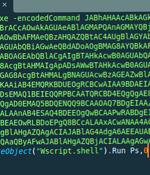Security News

A previously undetected advanced persistent threat actor dubbed Red Stinger has been linked to attacks targeting Eastern Europe since 2020. Red Stinger overlaps with a threat cluster Kaspersky revealed under the name Bad Magic last month as having targeted government, agriculture, and transportation organizations located in Donetsk, Lugansk, and Crimea last year.

An advanced persistent threat actor known as Dragon Breath has been observed adding new layers of complexity to its attacks by adopting a novel DLL side-loading mechanism. "The attack is based on a classic side-loading attack, consisting of a clean application, a malicious loader, and an encrypted payload, with various modifications made to these components over time," Sophos researcher Gabor Szappanos said.

An unknown Chinese state-sponsored hacking group has been linked to a novel piece of malware aimed at Linux servers. "The rootkit has a limited set of features, mainly installing a hook designed for hiding itself."

The advanced persistent threat known as Winter Vivern has been linked to campaigns targeting government officials in India, Lithuania, Slovakia, and the Vatican since 2021. The activity targeted Polish government agencies, the Ukraine Ministry of Foreign Affairs, the Italy Ministry of Foreign Affairs, and individuals within the Indian government, SentinelOne said in a report shared with The Hacker News.

Government and military organizations in the Asia Pacific region are being targeted by a previously unknown advanced persistent threat actor, per the latest research. Singapore-headquartered Group-IB, in a report shared with The Hacker News, said it's tracking the ongoing campaign under the name Dark Pink and attributed seven successful attacks to the adversarial collective between June and December 2022.

Attacks targeting government agencies and military bodies in multiple countries in the APAC region have been attributed to what appears to be a new advanced threat actor that leverages custom malware to steal confidential information. Security researchers refer to this group as Dark Pink or Saaiwc Group, noting that it employs uncommon tactics, techniques, and procedures.

APT hacking groups and ransomware operations are moving away from Cobalt Strike to the newer Brute Ratel post-exploitation toolkit to evade detection by EDR and antivirus solutions. In 2020, Chetan Nayak, an ex-red teamer at Mandiant and CrowdStrike, released Brute Ratel Command and Control Center as an alternative to Cobalt Strike for red team penetration testing engagements.

An advanced persistent threat group dubbed ToddyCat has been targeting Microsoft Exchange servers throughout Asia and Europe for more than a year, since at least December 2020. At the time, the hacking group exploited the ProxyLogon Exchange flaws that allowed them to gain remote code execution on vulnerable servers to deploy China Chopper web shells.

Just a few days after news of attempted use of a new variant of the Industroyer malware comes a warning from the US Cybersecurity and Infrastructure Security Agency: Certain APT actors have exhibited the capability to gain full system access to multiple industrial control system/supervisory control and data acquisition devices. These tools may allow attackers to compromise and control Schneider Electric programmable logic controllers, OMRON Sysmac NEX PLCs, and Open Platform Communications Unified Architecture servers.

A China-based threat group is likely running a month-long campaign using a variant of the Korplug malware and targeting European diplomats, internet service providers and research institutions via phishing lures that refer to Russia's invasion of Ukraine and COVID-19 travel restrictions. The ongoing campaign was first seen in August 2021 and is being tied to Mustang Panda - a Chinese APT unit also known as TA416, RedDelta and PKPLUG - due to similar code and common tactics, techniques and procedures used by the group in the past, according to researchers with the cybersecurity firm ESET. Mustang Panda is known for targeting governmental entities and non-governmental organizations, with most of its victims being in East and Southeast Asia.